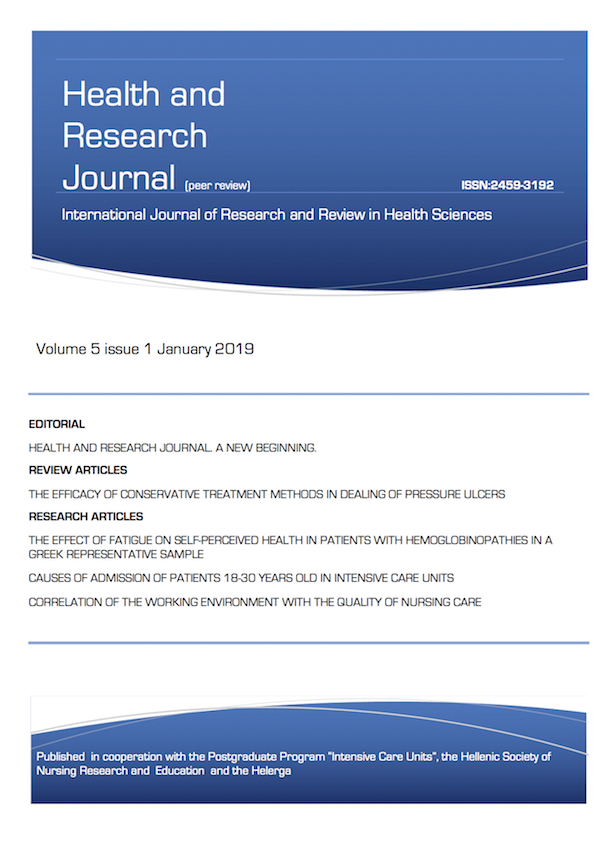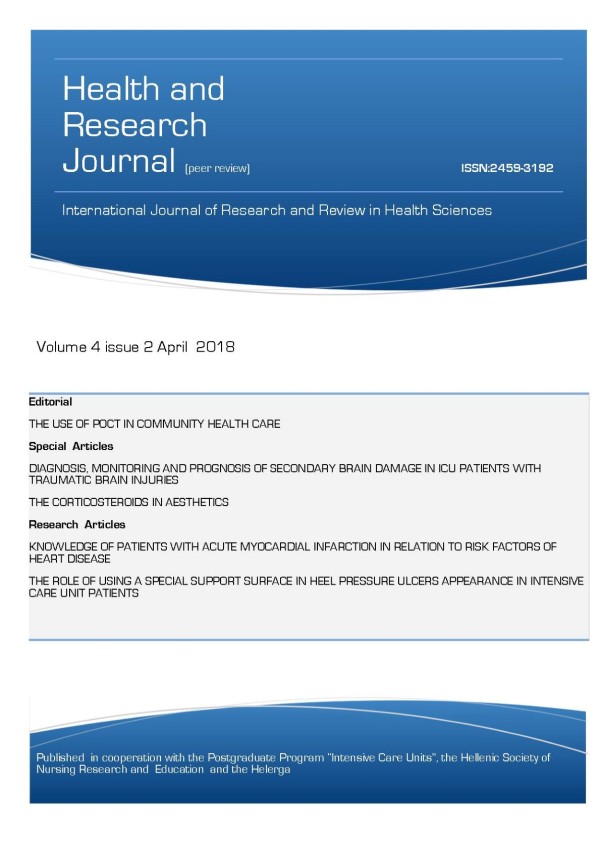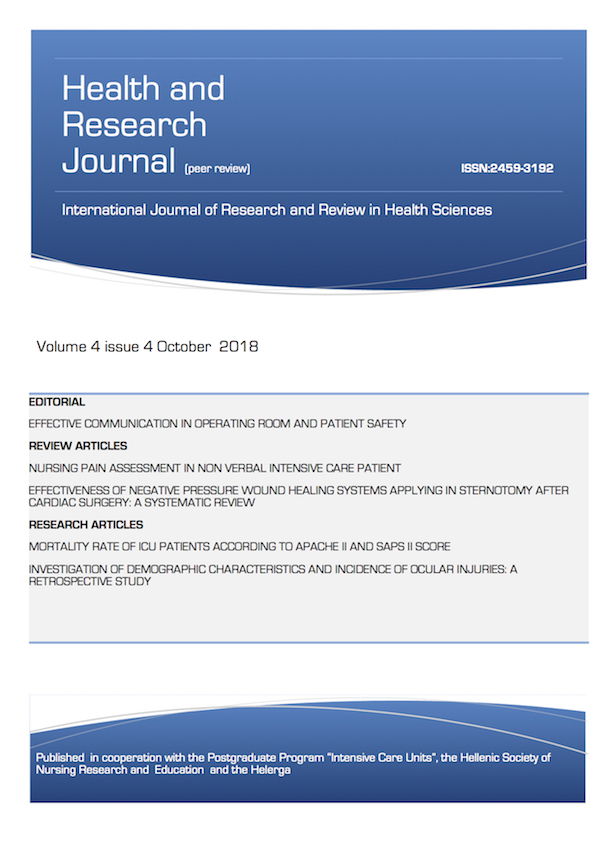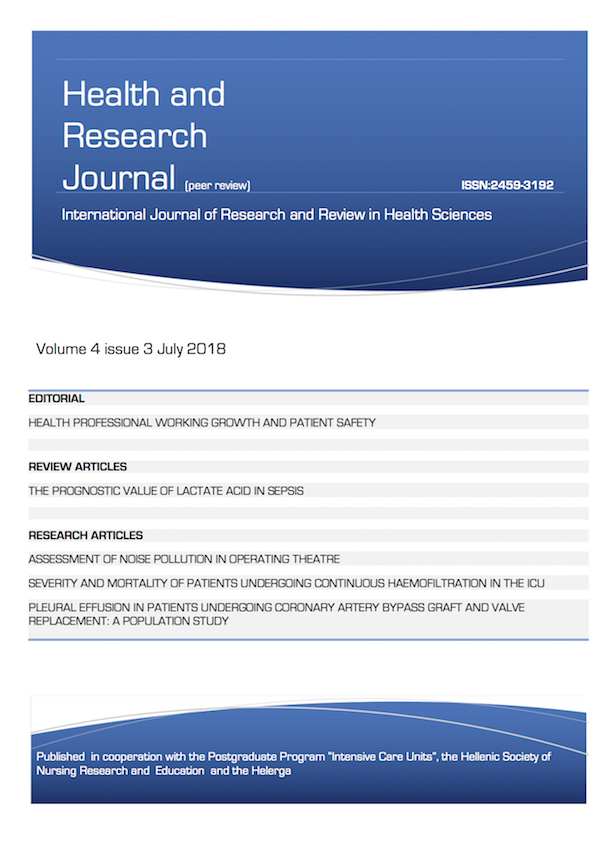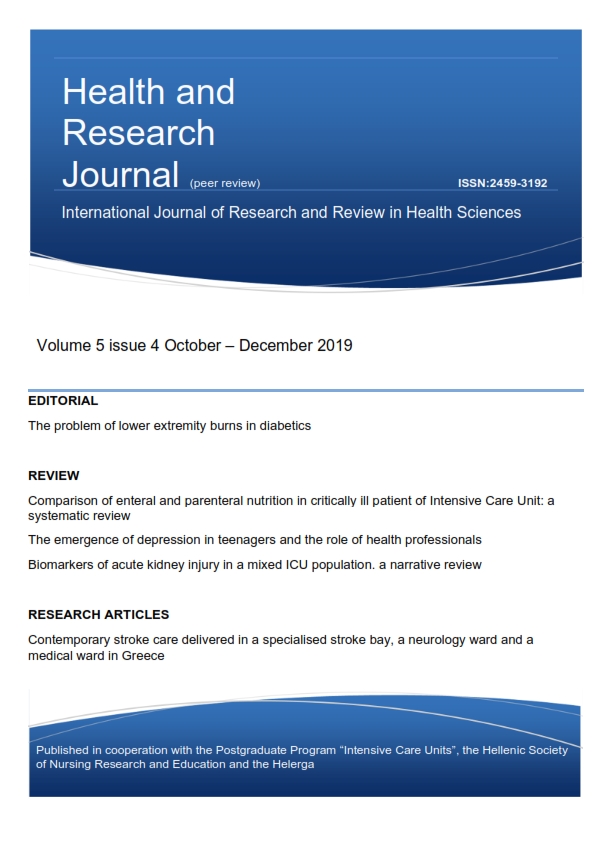Epidemiological - clinical features of primary malignant brain tumors of patients who underwent surgical resection and / or radiotherapy

Abstract
The aim of the present study was to describe the demographic characteristics of patients diagnosed with primary brain tumor, the clinical features and prognostic indicators of disease progression and treatment they received.
Methods: A retrospective descriptive study was conducted on a convenience sample of 47 patients who attended the radiotherapeutic department of General Hospital of Athens over three years, from May 2011 until May 2014.
For analysis used the statistical program SPSS 18.0.
Results: 59.6% of patients were male and 40.4% of patients were between 61 and 69 years. 85.1% of patients had glioblastomamultiforme and meningioma 8.5%. 57.5% of patients with glioblastomamultiforme were men and 50.0% of patients with meningioma. It was found that the patients with grade I-III were considerably higher percentage between 61 and 69 years as compared to patients with grade IV (p = 0,021). Patients with grade IV underwent chemotherapy significantly higher rate compared with patients with grade I-III. No significant difference was found in the course of radiotherapy among patients with grade IV and patients with grade I-III. Differed significantly Ki-67 among patients with grade IV and of patients with grade I-III patients with grade IV were higher Ki-67.
Conclusion: Glioblastoma multiforme (GBM) is the most frequently diagnosed intracranial malignant tumor in adults. Typical treatment for glioblastomas, with surgical resection followed by radiation and chemotherapy with temozolomide and anti - angiogenic therapy bevacizumab , have significantly improved the overall survival.
Article Details
- How to Cite
-
Lagiou, A., Papagiannopoulos, I., Margari, N., & Vasilopoulos, G. (2015). Epidemiological - clinical features of primary malignant brain tumors of patients who underwent surgical resection and / or radiotherapy. Health & Research Journal, 1(1), 56–73. https://doi.org/10.12681/healthresj.19286
- Section
- Original Articles
Copyright notice:
Authors retain copyright of their work and grant the Health and Research Journal the right of first publication.
License:
Articles are published under the Creative Commons Attribution 4.0 International License (CC BY 4.0). This license permits use, sharing, adaptation, distribution, and reproduction in any medium or format, including for commercial purposes, provided that appropriate credit is given to the author(s) and the original publication in this journal, a link to the license is provided, and any changes are indicated.
Attribution requirement:
Any reuse must include the article citation and DOI (where available), and indicate if changes were made.



